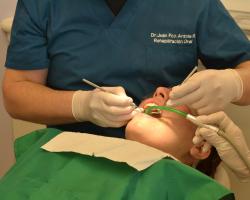The Medical Code of Ethics is a set of standards which are to be followed by every physician and dentist. It contains rules for the conduct of a physician towards patients, contacts between physicians, and biomedical experiments.
The provisions of medical ethics in force in Europe and some other countries are derived from the laws written by the Greek physician Hippocrates in the fifth century BC.
Hippocratic Oath
Graduates of medical schools in Poland still take the so-called Hippocratic oath, which is contained in the introduction to the Code.
Physicians vow for instance "to serve life and human health, prevent suffering and disease, and to help patients (...), not to abuse their trust and keep medical confidentiality even after the patient's death, to safeguard the dignity of the medical profession and do nothing to tarnish it, and to treat fellow physicians with due kindness, not to undermine confidence in them, but to act impartially and in the best interests of patients, while constantly expanding their medical knowledge."
History of codes for doctors in Poland
“Resolutions of the Association of Galician Physicians on the responsibilities of physicians towards their colleagues and the medical profession in general", published in print in 1876 in the Austrian Partition, are considered to be the first Polish code.
Established in 1921, medical chambers adopted “A set of principles of medical deontology" in 1935, and a year later “The Medical Code" was issued.
In 1952, the chambers were dissolved, and the ethical and deontological principles were dealt with by the Polish Medical Association, which issued them in 1967; ten years later, the principles were amended and gained the name of “The Collection of Ethical and Deontological Rules for the Polish Doctor".
The current Code was adopted in 1991 during the Extraordinary Second National Congress of the Chambers of Physicians. This was two years after the reactivation of medical chambers in 1989. The Code was amended twice, in 1993 and 2003.
General Principles of the Code
According to the Code, the principles of medical ethics derive from the general ethical standards. They require a physician to respect the human rights and safeguard the dignity of the medical profession. As explained, any conduct that undermines confidence in the profession is a violation of the dignity of the medical profession.
“The highest ethical imperative of the doctor is the welfare of the patient (...) and market mechanisms, social pressures, or administrative requirements do not exempt the physician from compliance with this rule."
The Chamber of Physicians and Dentists is required to ensure compliance with ethical principles.
Treatment of patients by physicians
The Code provides that physicians are free to choose the method which they consider most effective. Any diagnostic procedures, treatment and prevention should be carried out with due diligence.
The doctor is required to treat patients kindly, respecting their dignity, the right to intimacy and privacy; the doctor - patient relationship should be based on mutual trust.
The Code also contains rules concerning terminal care, transplantation and procreation. It provides for, among other things, the prohibition of euthanasia and participation in human cloning procedures.
Separate chapters are devoted to research and biomedical experiments, associations of physicians with industry and conflicts of interest, the human genome, mutual relations between doctors, rules of conduct in medical practice, and relations with the public.
The Code is available on the website of the Polish Chamber of Physicians and Dentists (www.nil.org.pl).









Comments (0)